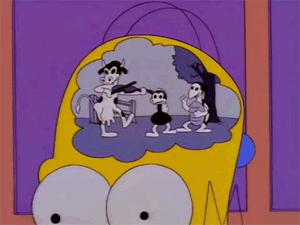
Digging deeper into music’s effect on the mind and the body
We’re all familiar with how music fan affects from both physical and mental points of view. No one is denying that there’s some kind of neurological connection. But what is it? This article from Eurozone (via Andrew) takes a look at what science thought in the Olden Days verses what we believe now.
“Anyone who has ever given any thought to their own listening experience knows that music can have potent physiological effects, from frissons down the spine to spikes in heart rate and blood pressure. And anyone, especially maybe those who have felt the impact of massive modern amplification technology in their lungs, knows that the body can literally resonate with music. What other art form can match music in terms of this directly physical power?
That power has long been the basis of much of the discussion of music’s potential as a form of therapy, and has also led to a huge amount of anxiety about the supposed ability of music to cause disease, to hypnotise listeners or to kill them stone dead. Thus, while the whole business of Musica Sanae, the role of music on health, is often depicted as a marginal and perhaps slightly whimsical aspect of the art form, because of this sheer inevitable physicality of music, theories of how music can cure the body or provoke illness are related to some of the biggest issues in our understanding of music in general.
“Fundamentally embodied models of listening have become dominant in many ways over recent decades, putting medical and scientific thinking at the heart of the aesthetics of music. This approach is often combined with the ‘common sense’ notion that music is, in a much over-used cliché, the ‘language of emotions’, even if in fact the role of feeling in music is by no means a settled question in aesthetics. The combination of the apparent direct physical nature of listening (compared to, say, reading a novel), and the recurring idea that ‘understanding’ music, achieving knowledge about its character, is a matter of grasping its emotional content, has made music the location of an ongoing debate about the relationship between emotions, medical and aesthetic knowledge and the body.“
This is fascinating. You definitely need to keep reading.

